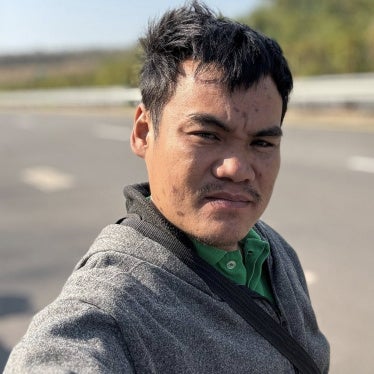Prime Minister Taro Aso
1-6-1 Nagata-cho
Chiyoda-ku
Tokyo
Japan 100-8968
Re: Making Human Rights a Priority in Japanese Foreign Policy
Dear Prime Minister Aso,
As Human Rights Watch opens its new Tokyo office today, we write to encourage your government to make the promotion of human rights a higher priority in Japanese foreign policy.
In 2006, as Foreign Minister, you made an important and welcome announcement that human rights, along with other values such as democracy and the rule of law, would be one of the four pillars of Japanese foreign policy. However, since that time all three administrations have yet to take steps to meaningfully translate this important vision into practice.
To date, the Japanese government has rarely demonstrated the international leadership of which it is capable by speaking strongly on behalf of victims of human rights abuses, instead favoring quiet diplomacy. One exception is North Korea, where Japan has led international efforts to condemn its appalling human rights record.
Human Rights Watch welcomes your efforts to take the lead in criticizing North Korea's dismal human rights record and press for improvements. Unfortunately, the focus has largely been on the rights of abducted Japanese citizens, rather than a more broad-based human rights agenda for all people in North Korea.
Elsewhere, Japan's approach to human rights has largely been to engage in quiet diplomacy and avoid public criticism of abusive governments. We believe this is an ineffective approach. It is important for Japan to have both strong diplomacy and, when necessary, to speak forthrightly in public.
As a major Asian power and the biggest aid donor to many Asian countries and elsewhere, Japan is in a unique position to influence its aid recipients to comply with international human rights and humanitarian law. However, this significant potential has rarely been used meaningfully to make a difference for victims, such as in the current conflict in Sri Lanka.
Now is the time for a new approach. Japan should announce that advancing human rights is a principal goal of Japanese foreign policy. Your government should start discussing reforms to lead to stronger and more effective policies and practices to promote and protect human rights globally, including linking aid with human rights benchmarks and imposing sanctions when the human rights situation merits such a response. By combining private and public diplomacy in a more strategic way, the Japanese government can strengthen its position internationally and end the practice of abusive regimes taking large sums of generous Japanese development aid while ignoring promises on human rights, good governance and the rule of law.
An important starting point for a reinvigorated Japanese human rights policy would be towards Burma. Since the military took power in Burma in 1962, Burma has relied heavily on Japanese foreign aid. Japan's aid constituted more than 90 percent of OECD-DAC members' aid to Burma in the mid-1990s. At the same time, trade between the two countries expanded. Though the economic situation and the horrible reputation of the Burmese military government have led to a decrease in Japanese foreign aid and investment, Japan has remained a major donor to Burma to the present.
After the sham 2008 referendum completed the fourth step of the military government's Seven Step Road Map to Democracy, and with multiparty elections announced for 2010, Japan's strong leadership in support of the voiceless in Burma is needed now more than ever. We urge your government to join other countries to press the Burmese government to:
- Immediately and unconditionally release an estimated 2,100 political prisoners, including Nobel Peace Prize winner Aung San Suu Kyi, and permit them free and unfettered participation in political activities.
- Cease restrictions on the rights to freedom of expression, assembly, and association.
- Begin a genuine inclusive and participatory dialogue on political reforms with the Burmese opposition and representatives of ethnic groups.
- Cease military attacks against ethnic minority populations, and hold accountable all members of the security forces responsible for war crimes and crimes against humanity.
We urge your government to join other nations in imposing sanctions on the Burmese government until these and other conditions are met. Such sanctions should include:
- A mandatory and fully enforced arms embargo on all weapons and ammunition sales and transfers to Burma.
- Targeted financial sanctions on select Burmese individuals and companies, including financial sanctions targeted at leading officials, both military and civilian, who bear responsibility for abuses, as well as others who may assist in, or be complicit in, military rule in Burma and benefit directly from continued military rule.
- Targeted sanctions on imports, exports, and new investment in sectors of Burma's economy that substantially benefit the military and/or are associated with serious human rights abuses. These include the petroleum (oil and gas), mining (gems, metals, minerals), and logging (logs and timber) sectors, as well as hydropower and other major infrastructure projects.
Human Rights Watch also urges your government to play a more proactive role as one of Asia's leading democracies by reaching out to its Asian neighbors, particularly China, India, and the members of the Association of Southeast Asian Nations (ASEAN) to put more coordinated multilateral pressure on the Burmese government.
Thank you for your consideration. We look forward to a long and constructive relationship with the Japanese government as we address current and future human rights challenges.
Yours sincerely,
Kenneth Roth
Executive Director








